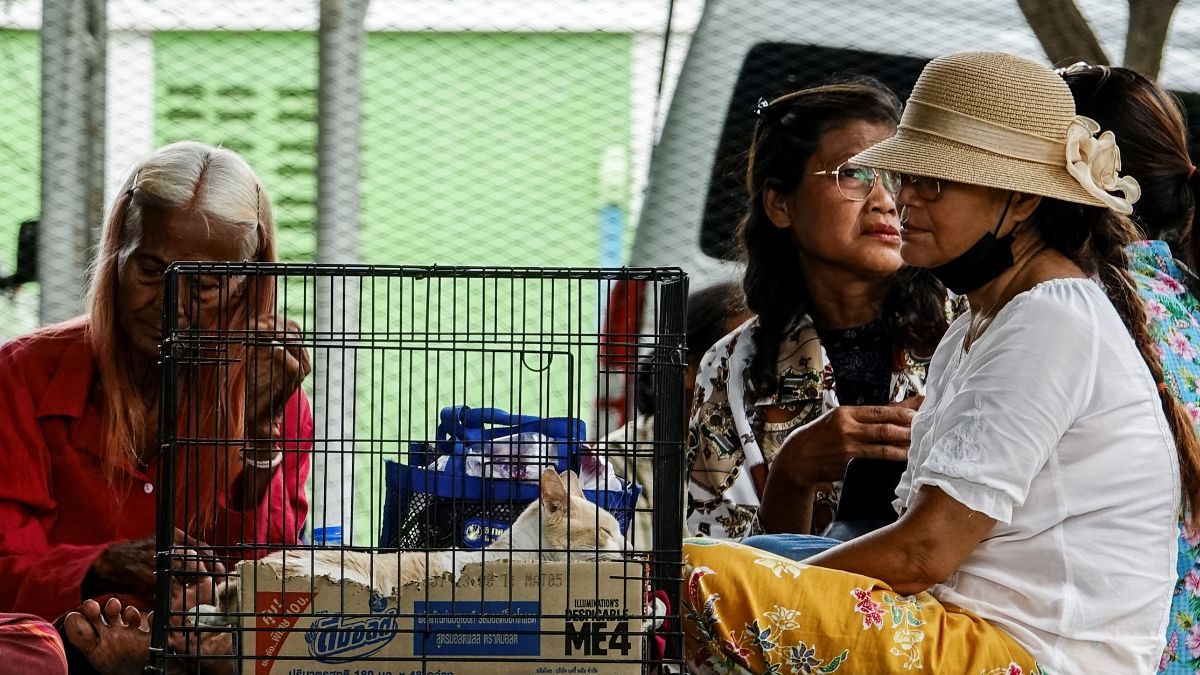Thailand and Cambodia’s clashes over their disputed border has entered Day 2. At least 15 people, mostly civilians and a soldier, have been killed in the fighting between the troops of the neighbouring Southeast Asian countries that erupted on Thursday (July 24) morning.
While Cambodia fired artillery and rockets, Thailand said it launched airstrikes on Cambodian military targets along the disputed border that the two share. Both countries have blamed each other for the latest clashes.
As tensions mount, countries have started issuing travel advisories for their nationals in Thailand and Cambodia.
Let’s take a closer look.
Thailand and Cambodia clash
Thailand and Cambodia exchanged fire on Thursday along an area near the disputed Ta Moan Thom Temple, located in a border area in northwestern Cambodia’s Oddar Meanchey province.
Clashes were also reported close to the Prasat Ta Krabey site and along the border separating Cambodia’s Preah Vihear province and Thailand’s Ubon Ratchathani.
According to Thai military official Rear Admiral Surasant Kongsiri, fighting spread to at least six areas along the border.
Thailand’s Health Minister Somsak Thepsuthin said 11 civilians, including an eight-year-old boy, and a soldier were killed in artillery shelling by Cambodian forces, and 24 civilians and seven military personnel were left wounded.
Thailand has evacuated at least 40,000 civilians from 86 villages near the border to safer locations, a district official in Surin province told the Reuters news agency.
It also closed its border with Cambodia after the conflict intensified.
Cambodia’s former leader Hun Sen said the country had “no choice but to fight back” against Thailand, which he said had shelled two Cambodian provinces, Oddar Meanchey and Preah Vihear.
“The invasion, as the Thai military said it would close down the Ta Moan Thom Temple today, which was ordered yesterday, Thai soldiers have now begun attacking the Cambodian army,” Hun Sen wrote on Facebook on Thursday morning. “The Cambodian army has no choice but to fight back and strike back.”
The Cambodian government has so far not revealed the number of casualties, if any.
Nearby countries have urged Thailand and Cambodia to de-escalate, with Malaysia’s Prime Minister Anwar Ibrahim saying he would speak to both countries.
Follow live updates on Thailand-Cambodia border clashes here .
Thailand, Cambodia popular among tourists
Thailand and Cambodia have emerged as tourist hotspots. A large number of people visit the two countries every year.
Tourists are drawn to Thai cities like Bangkok and Chiang Mai, as well as islands such as Phuket and Koh Samui.
Cambodia’s Angkor Wat temple complex and its capital, Phnom Penh, are major tourist attractions.
These tourist hubs are not located near the border clashes.
Are the nations safe to travel amid clashes?
Several countries have warned their nationals against travelling to the border areas between Thailand and Cambodia amid escalating tensions.
On Friday (July 25), the Indian embassy in Thailand urged its nationals to avoid travelling to seven provinces amid the conflict. “In view of the situation near Thailand-Cambodia border, all Indian travelers to Thailand are advised to check updates from Thai official sources, including TAT Newsroom,” it said in an X post.
In view of the situation near Thailand-Cambodia border, all Indian travelers to Thailand are advised to check updates from Thai official sources, including TAT Newsroom.
— India in Thailand (@IndiainThailand) July 25, 2025
As per Tourism Authority of Thailand places mentioned in the following link are not recommended for… https://t.co/ToeHLSQUYi
The United States Embassy in Thailand has asked its nationals travelling or living near the border to “follow direction from Thai security services and consult local government authorities for the latest information.”
The United Kingdom’s Foreign, Commonwealth & Development Office (FCDO) urged its citizens to “take extra care” and “follow the instructions of local authorities” when travelling in border areas between Thailand and Cambodia.
The FCDO travel advice added: “Take extra care and stay alert in border areas and follow the instructions of local authorities, especially at tourist destinations such as the Preah Vihear temple, the Ta Kwai temple and the Ta Muen Thom temple.
“There are also unexploded landmines in the border area. Stay on marked paths, especially around Ta Krabey.”
Thailand’s embassy in Phnom Penh asked its people should leave Cambodia “as soon as possible” unless it was urgent to stay.
China’s embassy urged its citizens in Cambodia to refrain from travelling to areas near the border and “remain vigilant.”
Cambodian Prime Minister Hun Manet has asked his country’s citizens living in Thailand to “maintain their morality and dignity” and to return home if they are “facing pressure from discrimination.”
“I appeal to all Cambodian citizens to maintain their morality and dignity, and to avoid discrimination or any actions that could affect the Royal Thai Embassy in Cambodia, Thai companies, and Thai citizens living in Cambodia,” he said in a statement posted on Facebook.
He added: “For Cambodian citizens who are living, working, or studying in Thailand and may be facing pressure from discrimination and wish to return to Cambodia, please come back to our country.”
Israel has issued a travel advisory for its nationals, asking them to avoid the border between Thailand and Cambodia. “Due to the growing tensions between Thailand and Cambodia, the Foreign Ministry recommends that Israeli travellers avoid entering or staying in the border area between the two countries, particularly in the northeastern provinces of Thailand and the northwestern provinces of Cambodia,” it said in a statement.
It added, “We recommend following reports in the local media and adhering to the instructions of security authorities as they are issued.”
Hong Kong’s Outbound Travel Alert System has issued an amber alert for Thailand. “Residents who intend to visit the country or are already there should exercise caution, attend to personal safety, pay attention to local announcements on the latest situation and avoid large gatherings of people,” it said in its warning.
It issued a similar warning for its people travelling to Cambodia.
With inputs from agencies


)

)
)
)
)
)
)
)
)



